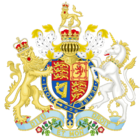Jews Relief Act 1858 facts for kids

|
|
| Long title | An Act to provide for the Relief of Her Majesty’s Subjects professing the Jewish Religion. |
|---|---|
| Citation | 21 & 22 Vict. c. 49 |
| Dates | |
| Royal assent | 23 July 1858 |
| Other legislation | |
| Repealed by | Promissory Oaths Act 1871 (partial) |
|
Status: Partially repealed
|
|
| Text of the Jews Relief Act 1858 as in force today (including any amendments) within the United Kingdom, from legislation.gov.uk | |
The Jews Relief Act 1858 (21 & 22 Vict. c. 49) was an important law passed in the United Kingdom. It helped Jewish people become members of Parliament. Before this Act, certain rules stopped them from taking their seats. It was also known as the Jewish Disabilities Act. This law was a big step in giving Jewish people more equal rights in the UK.
Contents
Why Was This Act Needed?
For a long time, people who wanted to join Parliament had to take a special oath. This oath included the words "upon the true Faith of a Christian". This meant that Jewish people, who did not believe in Christianity, could not honestly take the oath. Because of this, they were not allowed to become Members of Parliament (MPs).
In 1829, a similar law called the Roman Catholic Relief Act 1829 helped Roman Catholics join Parliament. After that, people tried to pass a law for Jewish people in 1830, but it didn't succeed.
The Fight for Change
The journey to pass the Jews Relief Act was long and challenging. It really picked up speed after a special election in 1847.
Lionel de Rothschild's Role
In 1847, Lionel de Rothschild was elected to Parliament for the City of London. He was a Jewish man. However, he could not take his seat because he refused to say the Christian part of the oath. This showed everyone how unfair the old rules were.
Lord John Russell's Efforts
Lord John Russell, a leader in Parliament, tried to change the law. He introduced a new bill to allow Jewish people to take their seats. Even Benjamin Disraeli, who later became Prime Minister and was from a Jewish family, supported this bill. However, many members of his own party did not agree.
The House of Lords' Resistance
The bill faced a tough time in the House of Lords, which is the upper house of Parliament.
- In 1848, the House of Commons (the elected house) approved the bill. But the House of Lords rejected it not once, but twice!
- A new bill was introduced in 1851, but it was also defeated by the House of Lords.
- Lionel de Rothschild was elected again in 1852, showing that people still wanted him in Parliament. Yet, the bill was defeated again the next year.
What the Act Changed
Finally, in 1858, a solution was found. The House of Lords agreed to a new idea. Each house of Parliament (the Commons and the Lords) could decide its own oath.
The Jews Relief Act 1858 allowed Jewish people to remove the words "and I make this Declaration upon the true Faith of a Christian" from their oath. This meant they could now become MPs and take their seats in Parliament.
Remaining Restrictions
However, the Act did not remove all barriers. Jewish people were still not allowed to hold certain very high government jobs. They also could not advise the Queen about jobs in the Church of England or the Church of Scotland.
At the same time, another law called the Oaths Act 1858 was passed. This law made similar changes for other public oaths outside of Parliament.
Later Changes
Over the years, more changes were made to these laws.
- In 1871, 1922, 1973, 1980, and 1986, new amendments removed almost all the remaining restrictions.
- Today, Jewish people can hold almost any public office. The only remaining restriction is that they cannot advise certain government officials on matters related to appointments in the Church of England or the Church of Scotland.
See also
- Disabilities (Jewish)
- Emancipation of the Jews in the United Kingdom
- Oaths Act 1888
 | Selma Burke |
 | Pauline Powell Burns |
 | Frederick J. Brown |
 | Robert Blackburn |

